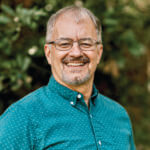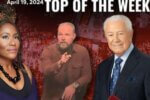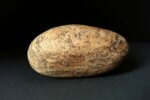When I spend time with the Africans my spiritual passion glows hotter.
The village of Ohanku is at least 15 miles from any major thoroughfare in Nigeria. When I visited there in January, our bus followed a one-lane dirt road that looked more like a footpath. I saw only two cars along the way, but several women were walking on the side of the road as they balanced bundles of food on their heads. Seeing my white face in this remote area prompted surprised looks from everybody.
When my group arrived in the village I was amazed to find almost 1,000 people waiting for church to start. They had assembled near a giant tree in the central market area; the tribal king and several chiefs and their wives were seated under a makeshift canopy. Most of the crowd belonged to different congregations but they had gathered in unity this afternoon to celebrate a miracle.
They called it “the healing of Ohanku land.” I was one of a handful of non-Africans to witness it.
The ceremony began when Mosy Madugba, a respected Nigerian minister and mentor of mine, reminded the people of how God blessed Israel when they renounced their foreign gods.
Then a frail tribal leader recited the history of the village. For centuries the people of this region had practiced witchcraft and worshiped a river goddess. Then in 1920, the chieftain explained, white missionaries brought the gospel to the
village–but local occult priests sent insects to drive them away.
“Today we are asking God to forgive the people of Ohanku for rejecting the gospel,” Mosy announced. He then asked another white minister, Jeff McGee from Texas, and me to represent the missionaries who had been expelled 85 years ago. Three tribal leaders took the microphone, one after the other, and asked for forgiveness. Jeff and I forgave them and pronounced God’s blessings on the people.
I knelt in the dirt. “Father,” I prayed in front of the crowd, “send Your prosperity to this village. Bless the crops. Bless the water. Bless the children with health and education. Let the gospel of Jesus be preached from this place.”
The healing of Ohanku continued on Sunday when we returned for a second service. This time the villagers had collected reminders of their old religion–goat skulls, sticks, chains and feathers used as occult charms–and dumped them in a huge pile.
Just as the Ephesians burned their occult books in the days of the apostle Paul (see Acts 19:19), the people of Ohanku broke a cycle of poverty and ignorance by burning their false gods. I joined with my Nigerian friends in singing worship choruses as their idols were consumed by the flames.
More joy erupted the next day when someone phoned Mosy with a report of a miracle. Some public water pipes in Ohanku that had been rusted shut for years opened suddenly the next morning.
Villagers saw the gushing water as a sign of God’s promised favor. Children began dancing in the streets.
The celebration in Ohanku is being repeated throughout Africa today. Entire communities in Nigeria are rejecting idols and embracing faith in Christ.
Only a century ago Nigeria was dominated by occultism. Today it is home to the world’s largest church and one of the world’s fastest growing denominations. Researchers say that in 25 years the global headquarters of missionary activity will be in Africa and Asia–not North America.
What does this mean for us? If we Americans want to stay in the flow of what the Holy Spirit is doing, we should learn a few things from our African brothers and sisters. We need the spiritual gifts that God has deposited in them. It’s time to stop looking at them as a mission field and recognize that the Holy Spirit has uniquely equipped them to instruct us. It is time for partnership.
The men and women I’ve met in Nigeria have forever changed my life. Mosy Madugba has taught me lessons about spiritual warfare that I never could have learned in an American setting. My friends Emmanuel Kure and Abu Bako–both of whom were attacked and scarred by Muslims after they preached in public–are models of apostolic bravery.
Many Nigerian Christians recognize that God has visited their nation and entrusted them with a serious responsibility to evangelize the world. They carry a sense of urgency that I don’t see in most Western churches. When I get close to the Africans my faith grows more aggressive, my prayers become more militant and my spiritual passion glows hotter.
Their intense zeal has nothing to do with skin color or nationality. It’s due to the fact that they have embraced a bold, raw, New Testament faith that we barely even recognize from where we sit in our cushioned pews.
When this African zeal spreads in our direction, I hope we gather around a bonfire of our own–to burn our idols of intellectual pride, racial prejudice and religious compromise. That will be a celebration indeed.






Leave a Comment
You must be logged in to post a comment.